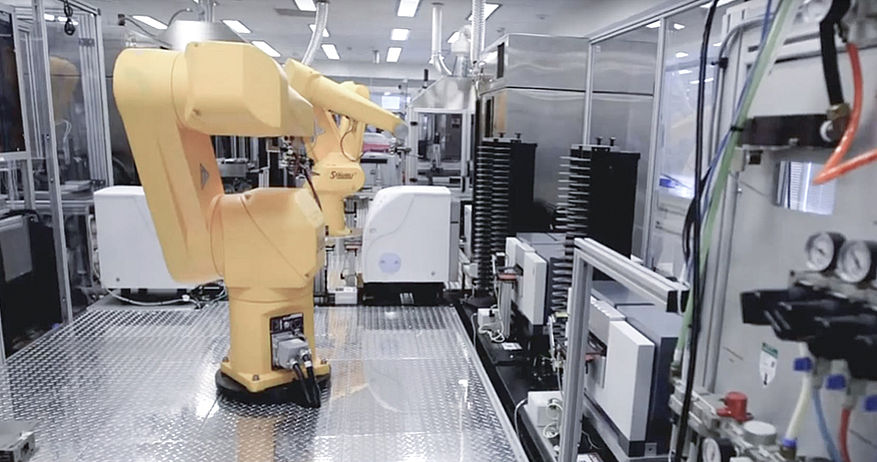
Stäubli expands robotics solutions for life sciences market
Stäubli Robotics says it is expanding the robotics solutions the company offers to the life sciences market.
The Covid-19 crisis has spurred life sciences labs to ramp up output at warp speed – and Stäubli Robotics says it is helping to meet critical needs.
As the challenges multiply and pressure mounts, Stäubli Robotics is actively expanding its offerings to the life sciences market, including a full range of flexible and collaborative robotic arms and mobility solutions.
The company has been developing high-throughput screening (HTS) technologies since the early 2000s, and presented its latest innovations for lab automation at SLAS 2021, a global digital conference hosted by the Society for Laboratory Automation and Screening on January 25-27.
Many challenges in the life sciences sector pre-date the Covid-19 pandemic, but were accelerated by these unprecedented circumstances. Demands for higher throughput, greater efficiency and productivity have intensified, along with increased need to minimize time spent on repetitive tasks, ensure safety, and maintain compliance with strict hygienic requirements.
In response, labs are increasingly implementing robotics for automated liquid handling and diagnostic systems.
Swiss-based Stäubli has been making innovative leaps in automation for sensitive environments for over two decades as a supplier of robots, and more recently, mobility solutions including autonomous mobile robots (AMRs) and automated guided vehicles (AGVs).
The company was the first to develop a fully encapsulated robot design with a minimized footprint and optimized work envelope, ideal for stringent laboratory requirements.
Working with specialized equipment builders, Stäubli offers customized solutions for lab automation that can transform biotech and pharmaceutical applications in terms of precision, safety, ease of use and integration, enabling seamless functioning with sequencing software.
“The mobile and connected laboratory of the future has arrived,” says Stäubli, adding that the companu has the technology and capabilities to “meet the most demanding requirements in life science”, covering:
- Cell culture apparatus/supplies
- Clinical automation/CLIA
- Diagnostics, clinical and pre-clinical
- Drug discovery
- Genomics & DNA sequencing
- HTS products and services
- Liquid handling equipment
- Microplate handlers
- Custom robotics
- Bioprinting
Main image: Researchers use Stäubli robots to test potential treatments in experimental projects. The result: in one week, the RX160 6-axis robots conduct millions of experiments faster and more accurately than any human could.
